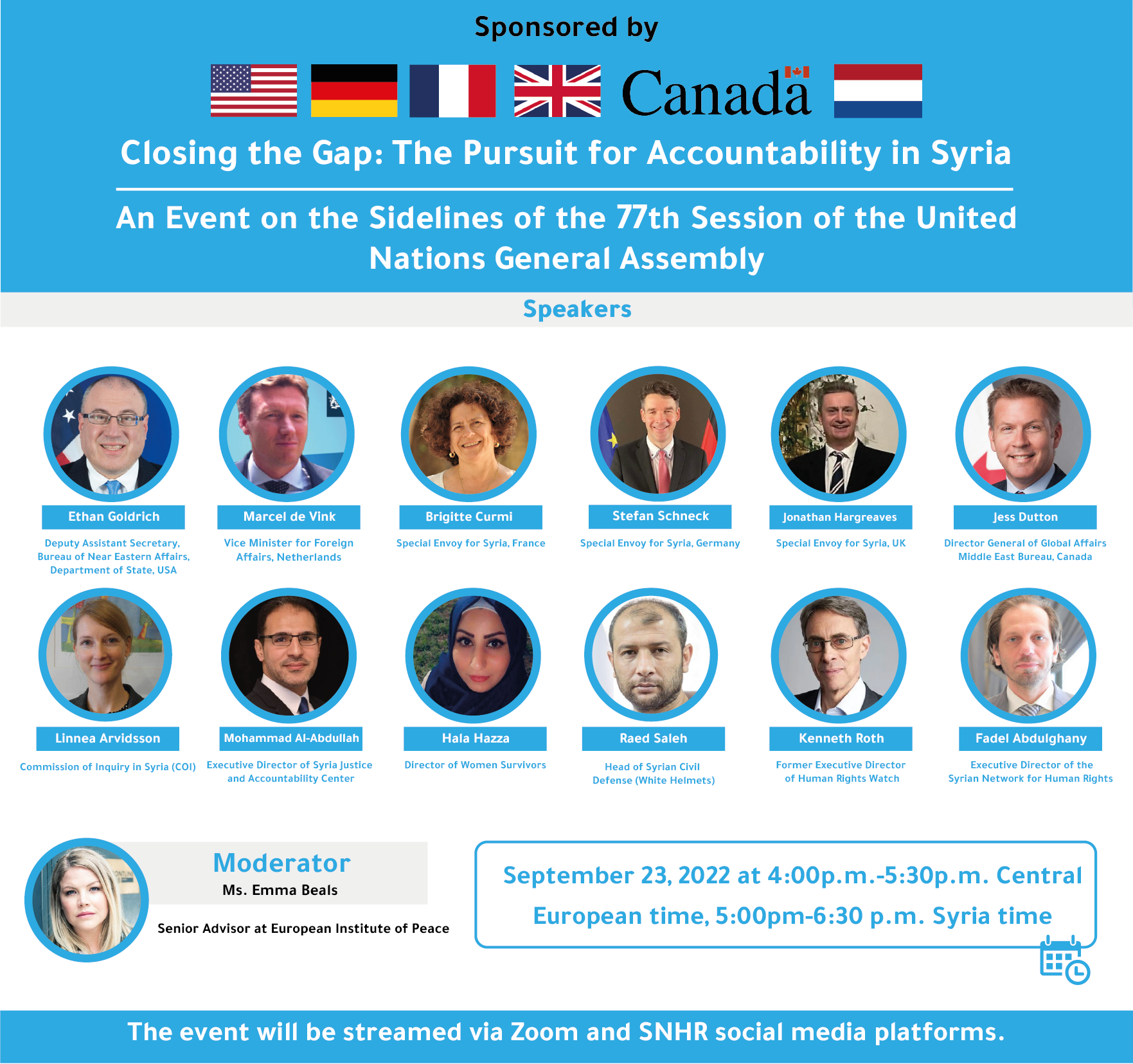
Languages
Available In
Eleven years have passed since the Syrian people courageously and peacefully took to the streets to demand freedom, political reform, and a government that respects human rights. The Assad regime responded to those demands with extrajudicial killings, arbitrary arrests, enforced disappearances, torture, sexual and gender-based violence, forced displacement, chemical weapon attacks, and countless other abuses and atrocities, some of which rise to the level of war crimes and crimes against humanity. Other parties to the conflict, including ISIS and armed opposition groups, have also committed and continue to commit abuses and violations against the Syrian people. The Assad regime’s continued brutality and its rejection of the political process remain roadblocks to any peaceful resolution of the crisis in Syria.
Since the start of the conflict, the Assad regime has killed at least 200,416 civilians, including 22,951 children, and around 111,907 individuals have been forcibly disappeared, according to the Syrian Network for Human Rights. These violations and abuses, and the regime’s blocking of humanitarian aid, have contributed to the forcible displacement of nearly half of Syria’s prewar population – with 6.9 million internally displaced and 6.8 million refugees – according to the United Nations High Commissioner for Refugees. Conditions in Syria are not conducive to safe, voluntary, and dignified returns, recognizing, among other things, the risk of violence, arbitrary arrest, and torture. Impunity for the horrific atrocities the Assad regime has perpetrated over the past eleven years is unacceptable and is a trend that has been worsened by the disturbing efforts, led by Russia and others, to engage with and rehabilitate the brutal Assad regime on the international scene.
Ongoing efforts by national courts to investigate and prosecute crimes within their jurisdiction committed in Syria are welcome steps towards accountability and have led to the conviction of regime intelligence officials for crimes against humanity in landmark cases. International support to the Independent International Commission of Inquiry and the International, Impartial and Independent Mechanism have also advanced accountability for violations and abuses in Syria. This also includes supporting organizations, many of which are Syrian-led, in collecting evidence and documenting the atrocities and serious violations of international law committed in Syria.
Pursuing accountability and justice is essential to building confidence in the political process called for in UNSCR 2254, and securing the stable, just, and enduring peace that Syrians need and deserve. Accountability, however, goes beyond efforts to support criminal justice processes. There are many steps that can be taken in parallel with such investigations and cases to promote accountability for the vast array of atrocities committed in Syria. For example, sanctioning individuals implicated in human rights abuses and violations; rejecting efforts to rehabilitate the brutal Assad regime; and clarifying the fate and whereabouts of the tens of thousands of missing or arbitrarily detained in Syria are all ways to advance accountability.
This event will address justice and accountability in the Syria context and explore how the international community can advance additional ways to hold those responsible for violations and abuses, mainly the Syrian regime and its allies, accountable.
The event will focus on the following questions:
- What is the impact of recent universal jurisdiction cases on efforts to advance accountability?
- How else can we promote accountability outside of criminal prosecutions?
- How can we strengthen the effectiveness of existing tools in holding the Assad regime and other parties to the conflict to account? How can sanctions against the Syrian regime promote accountability?
- How does the pressure of a sustained accountability campaign impact the participation of the Assad regime and its allies in the political process in line with Security Council Resolution 2254?
- How can civil society organizations, victims, and survivors work with national and international mechanisms to advance accountability efforts?
- How can we increase pressure on countries, individuals, and companies that support the rehabilitation of the Assad regime in order to advance accountability?
Speakers:
Ethan Goldrich, Deputy Assistant Secretary, Bureau of Near Eastern Affairs, US Department of State.
Marcel de Vink, Vice-Minister for Foreign Affairs, Netherlands.
Brigitte Curmi, Special Envoy for Syria, France.
Stefan Schneck, Special Envoy for Syria, Germany.
Jonathan Hargreaves, Special Envoy for Syria, UK.
Jess Dutton, Director General of Global Affairs Middle East Bureau, Canada .
Linnea Arvidsson, Commission of Inquiry in Syria (COI).
Kenneth Roth, Former Executive Director of Human Rights Watch.
Hala Hazza, Director of Women Survivors.
Mohammad Al-Abdullah, Executive Director of Syria Justice and Accountability Center.
Raed Al Saleh, Head of Syrian Civil Defense (White Helmets).
Fadel Abdul Ghany, Executive Director of the Syrian Network for Human Rights (SNHR).
Moderator:
Emma Beals, Senior Advisor at European Institute of Peace.
To participate directly on Zoom, please sign up using the following link.
After registering, you will receive a confirmation email containing information about joining the event.
To watch the live broadcast on social media platforms:
SNHR Twitter
SNHR Facebook
SNHR Youtube
For any additional information, please contact Mr. Abdulla Bassam
(+905312502092; [email protected]).


